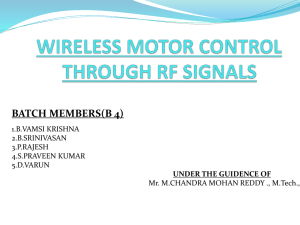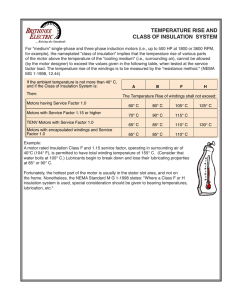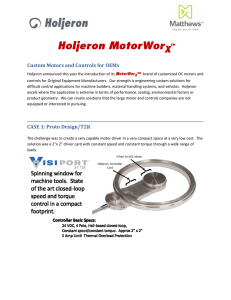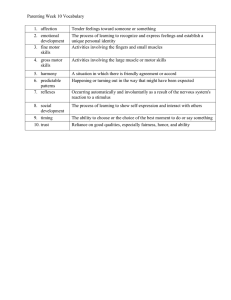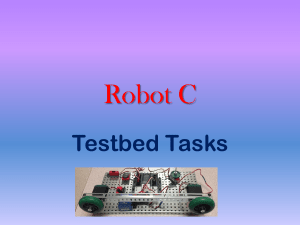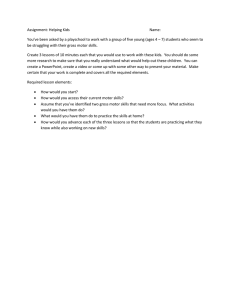Motor Maintenance and Testing
advertisement
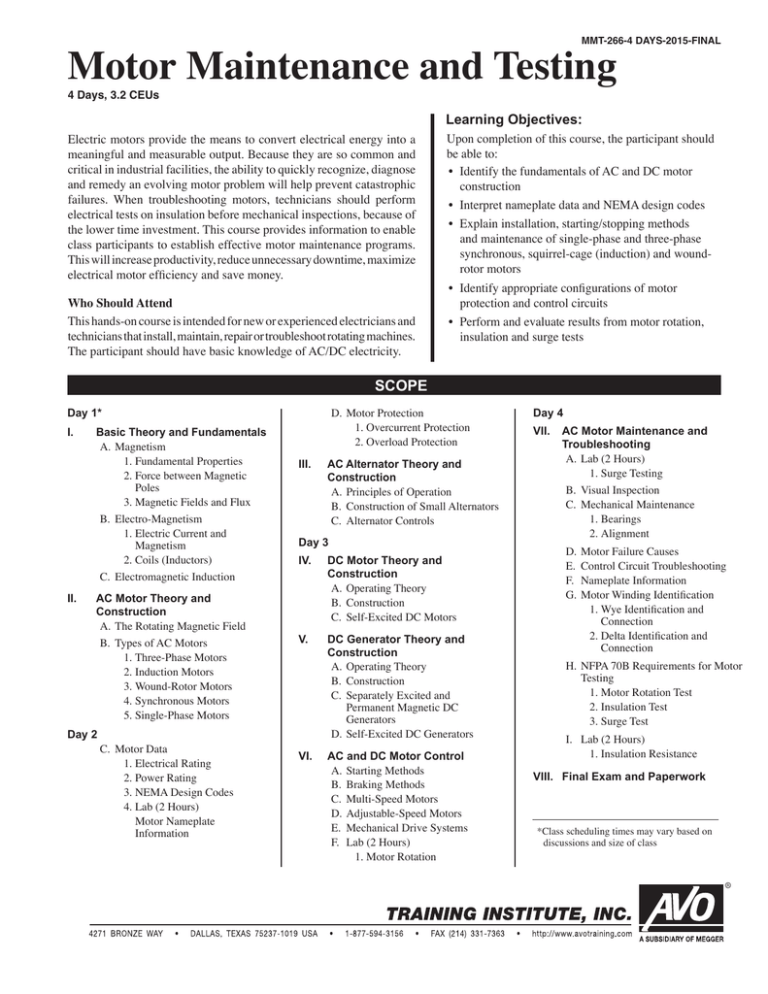
MMT-266-4 DAYS-2015-FINAL Motor Maintenance and Testing 4 Days, 3.2 CEUs Learning Objectives: Electric motors provide the means to convert electrical energy into a meaningful and measurable output. Because they are so common and critical in industrial facilities, the ability to quickly recognize, diagnose and remedy an evolving motor problem will help prevent catastrophic failures. When troubleshooting motors, technicians should perform electrical tests on insulation before mechanical inspections, because of the lower time investment. This course provides information to enable class participants to establish effective motor maintenance programs. This will increase productivity, reduce unnecessary downtime, maximize electrical motor efficiency and save money. Who Should Attend This hands-on course is intended for new or experienced electricians and technicians that install, maintain, repair or troubleshoot rotating machines. The participant should have basic knowledge of AC/DC electricity. Upon completion of this course, the participant should be able to: • Identify the fundamentals of AC and DC motor construction • Interpret nameplate data and NEMA design codes • Explain installation, starting/stopping methods and maintenance of single-phase and three-phase synchronous, squirrel-cage (induction) and woundrotor motors • Identify appropriate configurations of motor protection and control circuits • Perform and evaluate results from motor rotation, insulation and surge tests SCOPE Day 1* I. II. Basic Theory and Fundamentals A.Magnetism 1.Fundamental Properties 2.Force between Magnetic Poles 3.Magnetic Fields and Flux B.Electro-Magnetism 1.Electric Current and Magnetism 2.Coils (Inductors) C. Electromagnetic Induction AC Motor Theory and Construction A. The Rotating Magnetic Field B. Types of AC Motors 1.Three-Phase Motors 2.Induction Motors 3.Wound-Rotor Motors 4.Synchronous Motors 5.Single-Phase Motors Day 2 C. Motor Data 1.Electrical Rating 2.Power Rating 3.NEMA Design Codes 4.Lab (2 Hours) Motor Nameplate Information III. D. Motor Protection 1.Overcurrent Protection 2.Overload Protection AC Alternator Theory and Construction A. Principles of Operation B. Construction of Small Alternators C. Alternator Controls Day 3 IV. DC Motor Theory and Construction A. Operating Theory B.Construction C. Self-Excited DC Motors V. DC Generator Theory and Construction A. Operating Theory B.Construction C. Separately Excited and Permanent Magnetic DC Generators D. Self-Excited DC Generators VI. AC and DC Motor Control A. Starting Methods B. Braking Methods C. Multi-Speed Motors D. Adjustable-Speed Motors E. Mechanical Drive Systems F. Lab (2 Hours) 1.Motor Rotation Day 4 VII. AC Motor Maintenance and Troubleshooting A. Lab (2 Hours) 1.Surge Testing B. Visual Inspection C. Mechanical Maintenance 1.Bearings 2.Alignment D. Motor Failure Causes E. Control Circuit Troubleshooting F. Nameplate Information G. Motor Winding Identification 1.Wye Identification and Connection 2.Delta Identification and Connection H. NFPA 70B Requirements for Motor Testing 1.Motor Rotation Test 2.Insulation Test 3.Surge Test I. Lab (2 Hours) 1.Insulation Resistance VIII. Final Exam and Paperwork *Class scheduling times may vary based on discussions and size of class
